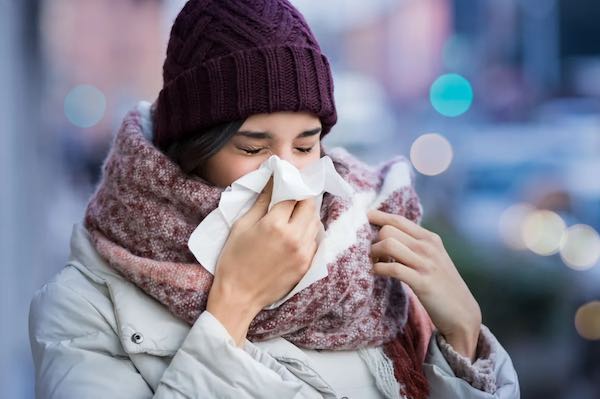Winter Can Present ENT-Related Challenges
- Category: Health
- Published: Monday, 20 January 2025 08:57
- Joanne Wallenstein
 The following was submitted by Alanna Windsor, MD, Pediatric Otorhinolaryngology – Head and Neck Surgery
The following was submitted by Alanna Windsor, MD, Pediatric Otorhinolaryngology – Head and Neck Surgery
The arrival of cold weather and snow may mean relief from outdoor allergies, but that doesn’t guarantee you’ll have smooth sailing until spring returns. In fact, some year-round ear, nose and throat (ENT) issues can be exacerbated during the winter months, while other challenges may present themselves.
Any of the common respiratory infections can be burdensome when people are stuck indoors more than usual. That includes the common cold; sinus infections (sinusitis); asthma flare-ups; ear infections; strep throat; and bloody noses due to drier air.
In addition, allergies to indoor factors like dust mites, cockroaches, fungi, and pet dander can be felt more keenly and may require extra attention when cleaning. Vacuuming and dusting your living space regularly; using an air filter to control allergens; washing and drying your bedding weekly; and removing mold can all be very helpful. You may also want to wear a mask while doing these chores for extra protection.
As for the other factors listed above, I recommend the following:
Common cold and Sinusitis. Practice good hand hygiene with soap and hot water or hand sanitizer and avoid touching your eyes and mouth. Try to avoid people who have the cold, which can be difficult if you’re living in close quarters with them, and if you haven’t already, get a flu shot.
Asthma. When it gets colder, your asthma may actually get worse. Use a mask and/or scarf when outdoors to make sure you’re breathing in warm air. Use a humidifier when indoors, and continue using your inhaler when needed; if you do not have one and continue to have breathing problems, consult your to determine which kind will work best for you.
Ear infections. Viral infections can be more common during the winter, which may affect your ears. Usually an earache goes away within a few days, but if it persists or keeps coming back, consult a physician. For recurrent ear infections, or persistent fluid buildup in the middle ear, referral to an ENT specialist may be warranted.
Strep throat. Again, using a humidifier will help ease a dry/sore throat, as will staying hydrated (tea with honey and lemon can be especially beneficial). Blowing your nose frequently can help keep airways clear, and vitamin D has also been shown to be helpful. You may also want to rest your voice to avoid extra irritation.
Nosebleeds. Nasal saline sprays and a humidifier can help lower the risk of nosebleeds. Try not to blow your nose too hard, as that can rupture blood vessels inside your nose. Use a thin layer of petroleum jelly to help moisturize your nose.
In addition, many of these conditions can be at least partially controlled with over-the-counter decongestants, antihistamines and pain relievers like ibuprofen or acetaminophen. Children under 6 should not be given such medications without first speaking with your doctor.
Will these remedies completely eliminate wintertime suffering? Not necessarily; after all, there famously is no cure for the common cold. But they can help alleviate at least some of your symptoms. Being armed with the right medical advice and treatments can certainly help in keeping your holidays happy. Dr. Alanna Windosr
Dr. Alanna Windosr
Dr. Alanna Windsor specializes in otolaryngology and pediatric otolaryngology at The Children's Hospital at Montefiore (CHAM) and sees patients at White Plains Hospital’s Pediatric Specialists, located at 600 Mamaroneck Avenue in Harrison. To make an appointment, call 914-849-KIDS.
Health Matters
The original version of this article was published in Health Matters, a White Plains Hospital publication.






